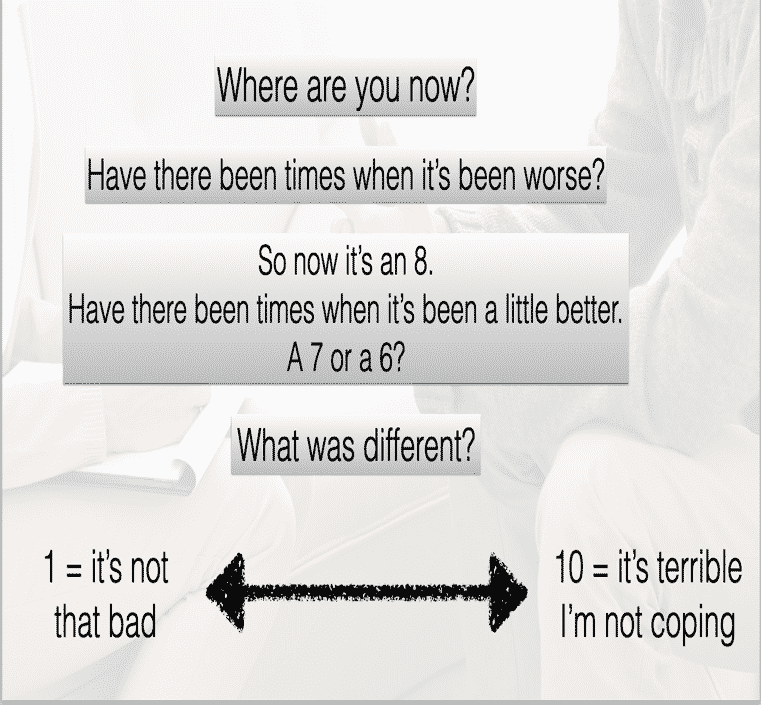Now that we’ve had posts addressing the wellbeing and connection parts of the Accidental Counsellor, I think it’s time that we take a look at the exception question, another solution-focused strategy. In many ways, our lives, including the problems and challenges that we experience, are like seasons. They come and they go; nothing is permanent. The exception question looks at when things are better or when you are managing better.
The Core Areas
The exception question looks at three core areas that frame the problem. Once you get the nature of the problem, you can start identifying exceptions to it – when it doesn’t happen, when it happens less frequently, when it’s less intense, etc.
- Nature of the problem (What is your problem?)
- Time of the problem (When did it occur?)
- Manner of the problem (How did this happen?)
Identify Exceptions to the problem
On establishing the nature of your problem, you can continue to work on recognizing and acknowledging the exceptions. In order to do so, you need to ask specific questions.
- When was this situation not happening?
- When did you feel that your problems weren’t this frequent?
- When did you feel that your problems weren’t as intense as you think now?
After getting the answers to these questions, you can move forward in exploring the differences between the current problematic situation and a positive past condition.
Explore the Differences
Once you get those exceptions, then you can explore the differences between those exceptions
- Where were you when this problem wasn’t this intense?
- Who was with you when you felt less distressed about your current situation?
- What was different about the time when this difficulty didn’t make you feel so anxious?
- What else was better about those times when your problems seem less frequent?
You can use these questions to prompt people to think about a more positive time in their life. This can make them feel less hopeless about their current situation.
Incorporating a Scaling Question
Integrating a scaling question is another solution-focused questioning technique. This scaling can be implemented by asking some specific questions.
For instance, when your friend or any individual says, “I’m feeling anxious,” you can ask them a question like, “On a scale of 1 to 10, how anxious are you feeling right now?”
If their answer is an 8 or 9, you can move forward by asking them to think about a time when it was a 10 or even more than that. Try to make that individual think about a time when their problems were much worse.
After making them remember a more negative period of their life, always remember to encourage them. You can tell them that there were worse times, but they were strong enough to push through it.
Now it’s time to transition smoothly to a better situation. If their previous answer was 8, ask them to think of a time when it was 6 or 7. After successfully making them think of a better situation and a worse condition, you will reach the last step of this questioning model.

“Tell me what was different about the better times?”
This is the question that will change their entire perception. It will make them realize how temporary their problems are. The nature of this universe is to evolve, making your difficulties worse and then better.
Wrapping Up
Exception questions give you hints toward possible next best steps by helping you look for strengths in previous experiences.
If you’ve found this post, or any of our previous posts helpful, consider becoming a member and taking the Accidental Counsellor short course. Members also have access to all of our other courses, as well as a monthly online training.
Go back the previous Modules here:

